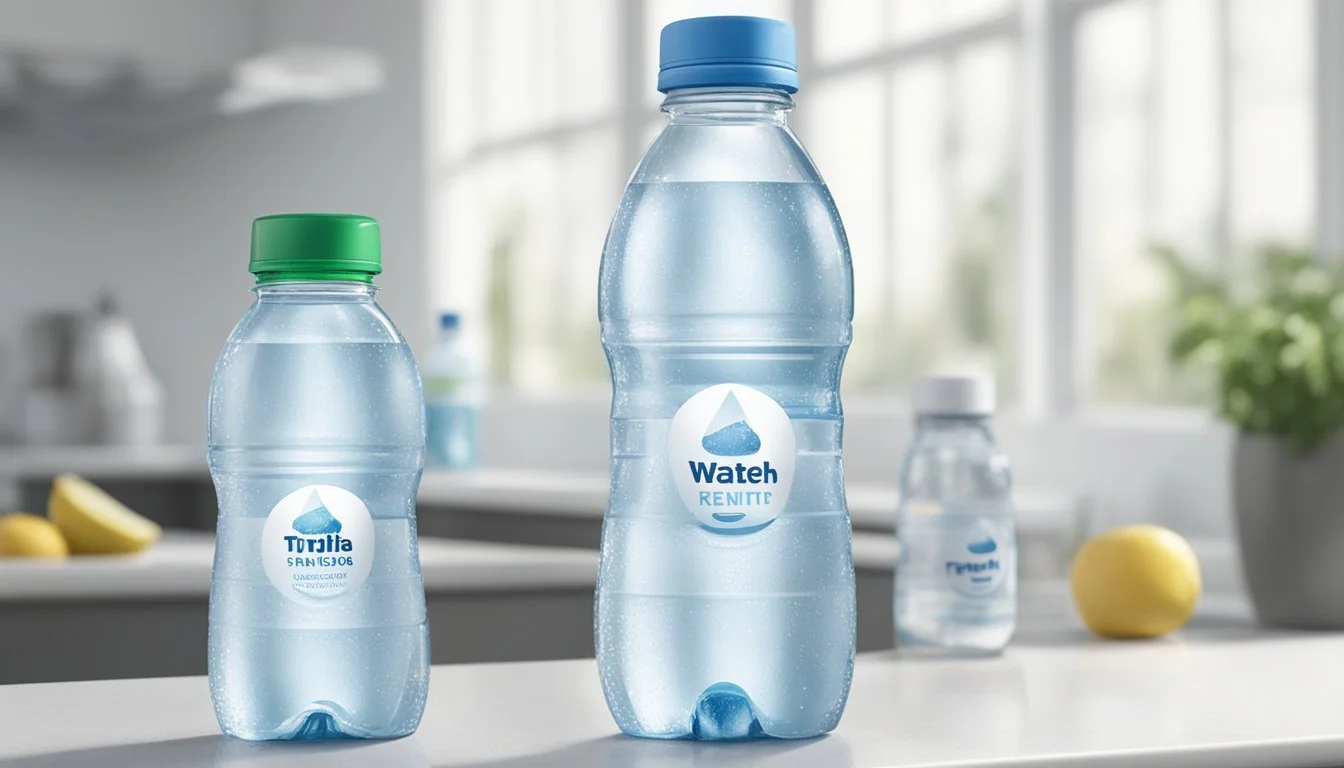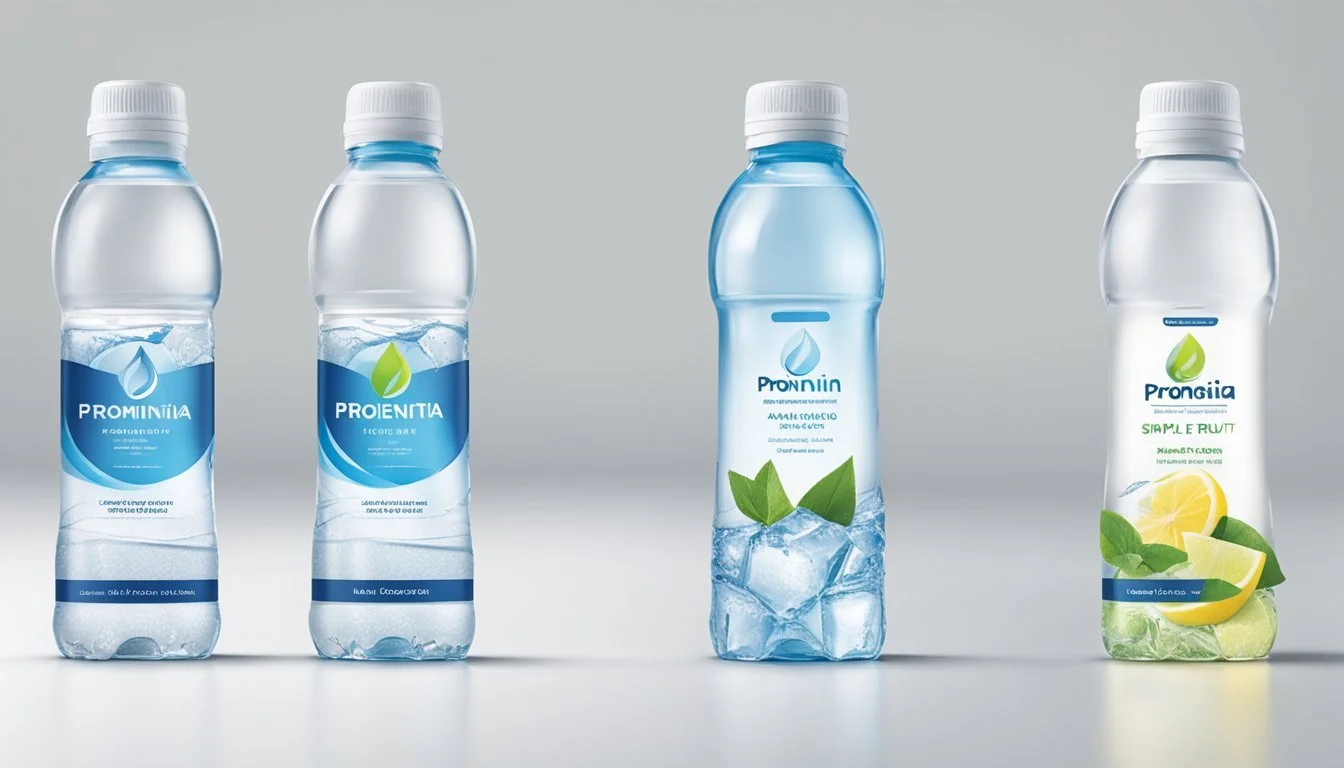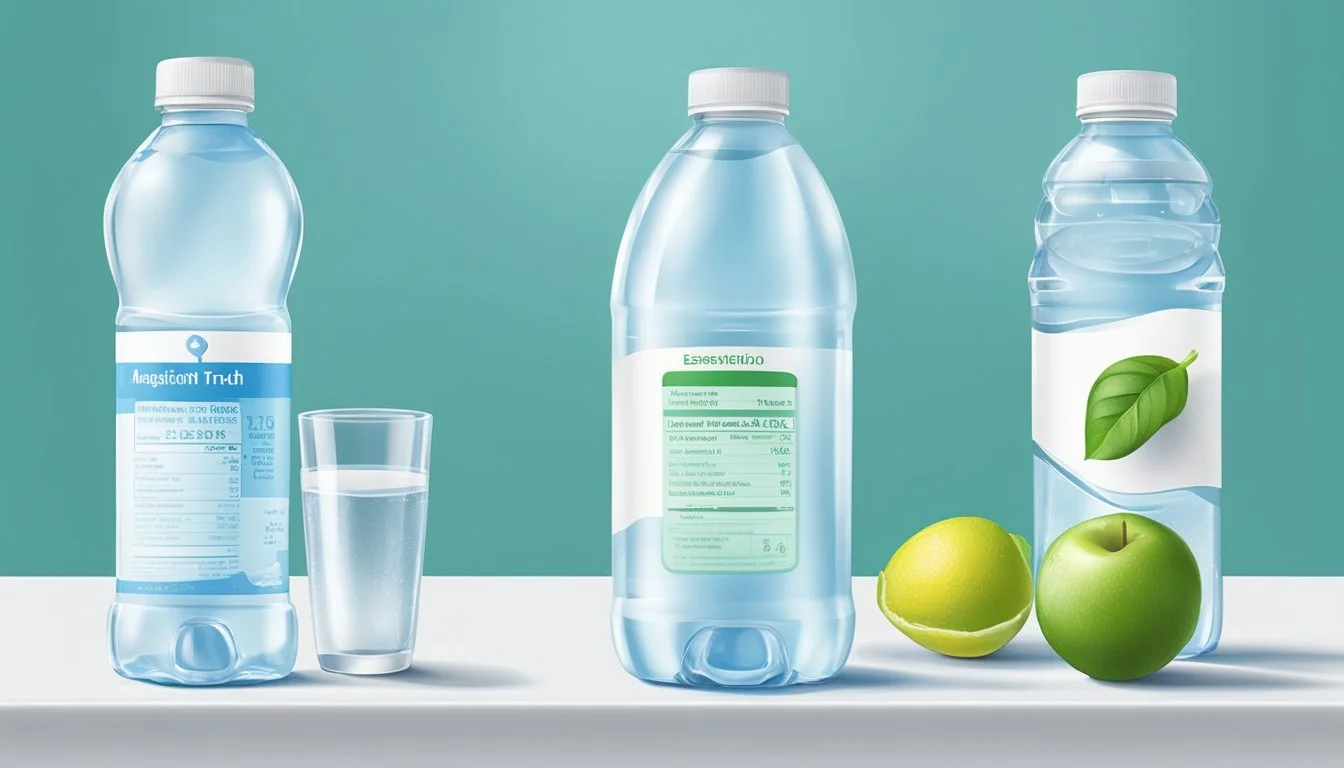Essentia vs. Simple Truth
Which Bottled Water Offers Better Quality?
Choosing the right bottled water can be more complicated than it seems, especially when comparing popular brands like Essentia and Simple Truth. These two brands offer different benefits that may cater to varied preferences and health goals. Essentia, known for its high pH level and alkaline properties, appeals to those looking for enhanced hydration and electrolyte infusion.
Simple Truth, on the other hand, emphasizes affordability and eco-friendliness, often using sustainable packaging and providing purified drinking water without the premium price tag. For those prioritizing hydration and electrolyte balance, Essentia may stand out, while Simple Truth is a solid choice for budget-conscious consumers.
Understanding the specific benefits and downsides of each can help make a more informed decision. Both Essentia and Simple Truth have unique selling points, making them suitable for different lifestyles and preferences. Whether it's high pH alkaline water or budget-friendly purified water, there's something for everyone.
Understanding Bottled Water
Bottled water comes in various types, each with its distinct characteristics and benefits. It's crucial to know how bottled water is regulated and the impact it has on the environment.
Types of Bottled Water
Spring Water: This water comes directly from a natural spring where water flows to the surface of the earth. It is collected at the source and typically retains natural minerals, giving it a unique taste.
Purified Water: Purified water has been treated to remove impurities and contaminants. Common purification methods include reverse osmosis, distillation, and deionization, ensuring the water meets strict quality standards.
Mineral Water: Mineral water naturally contains dissolved minerals, such as calcium and magnesium. These minerals are typically acquired directly from the source and must be consistent with the FDA's standards for mineral content.
Alkaline Water: Alkaline water typically has a higher pH level than regular tap water, often above 7. It is believed to help neutralize acid in the body and can be created through ionization processes or by adding minerals to the water.
Bottled Water Regulations
Bottled water is regulated to ensure safety and quality. In the United States, the FDA sets standards for bottled water, requiring it to be processed, bottled, and transported under stringent sanitary conditions.
Labeling: Bottles must be correctly labeled, specifying the type of water and any treatments it has undergone. Key information such as the source and mineral content must be included on the label.
Testing: Regular testing for contaminants and a consistent match with specified purity levels are mandatory. Compliance with standards for microbiological, physical, radiological, and chemical attributes is essential.
Approval: Facilities involved in the bottling process need to get approvals and follow guidelines similar to those applied to public water systems overseen by the Environmental Protection Agency (EPA).
Environmental Impact of Bottled Water
The production and consumption of bottled water have various environmental implications. Plastic bottles contribute significantly to plastic waste, as many are not recycled properly and end up in landfills or oceans.
Energy Use: Manufacturing and transporting bottled water consume large amounts of energy. The entire lifecycle from production to disposal is resource-intensive.
Water Source: Extracting water from natural sources can deplete local aquifers, affecting surrounding ecosystems and communities. Responsible sourcing practices are essential to minimize the ecological footprint.
Biodegradability: Plastic bottles take hundreds of years to degrade. Exploring alternatives like biodegradable bottles or increasing recycling efforts can mitigate some environmental impacts.
By understanding these aspects of bottled water, consumers can make more informed decisions.
Assessing Water Quality and Safety
Both Essentia and Simple Truth's bottled waters are evaluated for their quality and safety by considering elements like contaminants, purification processes, and the presence of beneficial minerals. The analysis details these aspects thoroughly to offer a comprehensive understanding of the distinctions between the two brands.
Contaminants and Impurities Analysis
Essentia boasts a rigorous purification process involving microfiltration, reverse osmosis, and ultraviolet exposure. This process aims to remove contaminants like heavy metals (lead, arsenic, mercury) and PFAS chemicals, significantly enhancing the water’s safety.
Simple Truth water, on the other hand, typically undergoes a thorough filtration procedure aimed at eliminating common impurities and contaminants. However, specific details about the removal of hazardous chemicals and heavy metals are less documented compared to Essentia.
Key Contaminants Analyzed:
Lead
Arsenic
Mercury
PFAS chemicals
Essentia appears to emphasize higher standards in removing these harmful substances, potentially providing a safer drinking option.
Mineral Content and Health Benefits
Essentia water contains a blend of electrolytes such as magnesium, calcium chloride, and sodium bicarbonate. These minerals not only enhance the taste but also offer health benefits like improved hydration and electrolyte balance. Essentia maintains a high pH level of 9.5, making it a more alkaline option which some consumers prefer for perceived health benefits.
Simple Truth water also contains essential minerals, but their exact quantities and impacts are less prominently specified. The total dissolved solids (TDS) count, which reflects mineral content, may vary, often correlating with moderate mineral levels suitable for general consumption.
Essential Minerals:
Magnesium
Calcium chloride
Sodium bicarbonate
Essentia’s detailed focus on its mineral composition and alkalinity may offer superior health benefits, ensuring both taste and quality meet high standards.
Comparing Essentia and Simple Truth
Both Essentia and Simple Truth offer unique qualities in their bottled waters that cater to specific consumer preferences. The differences between the two brands lie in their company philosophies, water sources, production processes, and taste profiles.
Company Profiles and Brand Philosophies
Essentia was founded on the belief in creating optimal hydration products with high pH levels. Its alkaline water contains added electrolytes and minerals to enhance hydration benefits. Simple Truth, a brand under the Kroger Company, promotes natural and organic products, focusing on sustainability and natural sourcing in its water products.
Essentia focuses on scientific enhancement and hydration efficiency. Conversely, Simple Truth emphasizes transparency, environmental responsibility, and natural purity, aligning with its wider range of organic and natural products.
Source and Production Differences
Essentia uses tap water sources that undergo a proprietary ionization process. This treatment not only purifies but also increases the pH to over 9.5. The process involves removing acidic ions and adding a blend of electrolytes.
Simple Truth offers natural spring water sources. The emphasis is on minimal processing to retain the purity of the natural springs. This straightforward approach appeals to those seeking water in its most basic and unaltered form.
Taste Profiles and Water Sommelier Insights
Essentia water is known for its clean and crisp taste, attributed to the addition of electrolytes. It often appeals to those preferring a slightly alkaline flavor. Water sommeliers praise it for its consistency and smooth finish, suitable for athletes and health enthusiasts.
Simple Truth, benefiting from its natural source, often has a more neutral taste. It avoids the pronounced metallic or processed aftertaste that some enhanced waters might have. Its subtle flavor makes it a favorite among those who prefer natural water experiences without added minerals or artificial enhancement.
These differences underline distinct consumer choices, from scientifically enhanced water to pure natural spring water. Consumers' personal preferences for taste and philosophy play a significant role in their selection between these brands.
Health and Hydration
Essentia and Simple Truth both claim to offer benefits for health and hydration. This section examines their hydration efficiency and the impact of their pH levels.
Hydration Efficiency
Essentia Water is ionized alkaline water with a pH of 9.5 or higher. It contains added electrolytes which can aid in hydration and bodily functions, such as muscle contraction and nerve signaling. The ionization process is designed to produce smaller water clusters, purportedly enabling quicker absorption by the body.
Simple Truth Water typically features a balanced pH closer to neutral, suitable for everyday hydration. While it may not boast the high pH level of Essentia, it maintains essential electrolytes that support fundamental bodily functions. Its hydration efficiency is comparable to many standard bottled waters catered to regular consumption needs.
Both brands offer hydration solutions, but Essentia's ionized alkaline properties aim to optimize absorption and enhance performance, whereas Simple Truth focuses on offering reliable daily hydration.
pH Levels and Alkalinization
Essentia stands out for its high pH levels, marketed as having potential health benefits like neutralizing acid in the bloodstream. This high alkalinity environment may support better hydration and improved bodily balance for those seeking specific alkaline benefits.
Simple Truth Water generally maintains a near-neutral pH level, around 7, which aligns with the body's natural pH without making significant claims about alkalinization. This makes it a steady option for everyday hydration without the additional claims of altering bodily pH levels.
In essence, Essentia's high pH and ionization target niche hydration and health benefits, while Simple Truth offers consistent and straightforward hydration aligned with standard requirements.
Analyzing Consumer Choices
Choosing between Essentia and Simple Truth bottled waters often boils down to price, availability, and customer experiences. Each brand presents unique advantages, impacting consumer decisions in various ways.
Price Comparison
Pricing is a crucial factor influencing consumer choices. Essentia water, known for its high pH and added electrolytes, is typically priced higher than Simple Truth. Essentia usually costs around $1.50 to $2.00 per bottle, depending on the retailer and size.
Simple Truth offers a more budget-friendly option, often ranging from $0.90 to $1.20 per bottle. This price difference can significantly impact a buyer's decision, especially for those purchasing in bulk or on a budget.
Availability and Accessibility
Availability greatly affects consumer preferences. Essentia is widely available in major grocery stores, health food stores, and online platforms like Amazon, making it convenient for many consumers. Their extensive distribution network ensures steady stock in various regions.
Simple Truth is primarily found in Kroger supermarkets and associated stores. Although less widespread, consumers can still find it easily within Kroger's extensive network of retail locations. This limited distribution may influence choices for those without a nearby Kroger store.
Customer Reviews and Testimonials
Customer reviews provide valuable insights into the quality and satisfaction levels experienced by consumers. Essentia often receives positive feedback for its taste, high pH levels, and perceived health benefits. Many users appreciate its consistent quality and effective hydration.
Simple Truth also garners favorable reviews, particularly for its affordability and clean, refreshing taste. Some consumers note its convenient availability in Kroger stores and satisfactory hydration levels. However, preferences tend to vary based on individual taste and brand loyalty.
Essentia and Simple Truth both have strong followings, but personal preference, budget, and access to retailers play pivotal roles in shaping consumer choices in the bottled water market.
Environmental and Ethical Considerations
Essentia and Simple Truth aim to offer high-quality water while addressing environmental and ethical responsibilities. Their approaches differ significantly, particularly in packaging, recycling, carbon footprint, and sustainability.
Packaging and Recycling
Essentia uses plastic bottles, which contribute to environmental concerns regarding waste and recycling. Despite this, Essentia focuses on using BPA-free plastic and encourages recycling through informative labeling.
Simple Truth, a Kroger brand, offers a more environmentally friendly option with its bottles made from 100% recyclable PET. They emphasize the use of post-consumer recycled plastic (PCR), reducing raw material usage. Both brands strive to make recycling easier for consumers; however, Simple Truth's commitment to PCR places it ahead in terms of sustainable packaging practices.
Carbon Footprint and Sustainability
The carbon footprint of bottled water involves the entire production chain, from sourcing water to shipping bottles. Essentia sources its water and enhances it through a unique ionization process, which adds to its energy footprint. They are working on reducing this impact by partnering with carbon offset programs.
Simple Truth takes a holistic approach to sustainability by sourcing water locally when possible and maintaining a commitment to renewable energy sources in their production facilities. They also actively support sustainable practices across their supply chain, from manufacturing to distribution, aiming to lower their combined carbon output.
Both brands recognize the importance of sustainable practices, but Simple Truth's broader approach to reducing their carbon footprint sets a stronger example in the industry.
Conclusion
Essentia and Simple Truth bottled waters both offer unique benefits, making them appealing for different reasons. The final decision comes down to individual preferences and specific needs.
Final Thoughts on Essentia vs. Simple Truth
Essentia water is known for its high pH level, which typically exceeds 9.5. This makes it a popular choice for those seeking alkaline water with added electrolytes. Its purification process, including micro-filtration and reverse osmosis, ensures a high level of purity.
Simple Truth, on the other hand, focuses on offering a more natural product. It is often sourced from spring or artesian wells, maintaining its mineral content without extensive processing. This appeals to consumers looking for a more traditional bottled water option.
Overall, both brands present their own set of advantages, catering to different consumer needs and preferences.
Making an Informed Decision
When choosing between Essentia and Simple Truth, consider what is most important for your hydration needs. If you prioritize high alkalinity and added electrolytes, Essentia stands out as a strong candidate.
For those who value a natural source with minimal processing, Simple Truth offers a compelling option. Additionally, factors such as cost, availability, and environmental impact of packaging might influence your decision.
Each brand provides clear benefits, making it essential to align your choice with your personal health goals and lifestyle.
More About Essentia
Essentia vs Cascade Mountain: Which Bottled Water is Better?
Essentia vs Hawaiian Springs: Which Bottled Water is Better?
Essentia vs Icelandic Glacial: Which Bottled Water is Better?
Essentia vs Kirkland Signature: Which Bottled Water is Better?
Essentia vs Mountain Valley Spring Water: Which Bottled Water is Better?
Essentia vs Nestle Pure Life: Which Bottled Water is Better?
Essentia vs Richard's Rainwater: Which Bottled Water is Better?
Essentia vs Talking Rain AQA: Which Bottled Water is Better?
Essentia vs Whole Foods Italian Still Mineral water: Which Bottled Water is Better?
More About Simple Truth
Aqua Carpatica vs Simple Truth: Which Bottled Water is Better?
Cascade Mountain vs Simple Truth: Which Bottled Water is Better?
Core Hydration vs Simple Truth: Which Bottled Water is Better?
Crystal Geyser vs Simple Truth: Which Bottled Water is Better?
Hawaii Volcanic vs Simple Truth: Which Bottled Water is Better?
Hawaiian Springs vs Simple Truth: Which Bottled Water is Better?
Ice Mountain vs Simple Truth: Which Bottled Water is Better?
Icelandic Glacial vs Simple Truth: Which Bottled Water is Better?
Liquid Death vs Simple Truth: Which Bottled Water is Better?
Mountain Valley Spring Water vs Simple Truth: Which Bottled Water is Better?
Nestle Pure Life vs Simple Truth: Which Bottled Water is Better?
Poland Spring vs Simple Truth: Which Bottled Water is Better?
Purely Sedona vs Simple Truth: Which Bottled Water is Better?
Richard's Rainwater vs Simple Truth: Which Bottled Water is Better?
San Pellegrino vs Simple Truth: Which Bottled Water is Better?
Simple Truth vs Crystal Lake: Which Bottled Water is Better?
Simple Truth vs Essence pH10: Which Bottled Water is Better?
Simple Truth vs Kirkland Signature: Which Bottled Water is Better?
Simple Truth vs Proud Source: Which Bottled Water is Better?
Simple Truth vs Talking Rain AQA: Which Bottled Water is Better?
Simple Truth vs Whole Foods 365: Which Bottled Water is Better?
Solan de Cabras vs Simple Truth: Which Bottled Water is Better?
Whole Foods Italian Still Mineral water vs Simple Truth: Which Bottled Water is Better?






